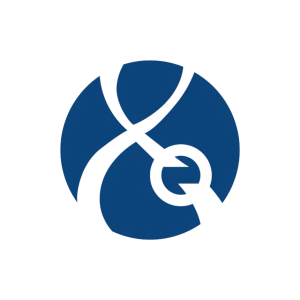Precision BioSciences Announces Complete Clinical Response in First Infant Dosed by Partner iECURE in Ongoing Phase 1/2 Clinical Trial in Ornithine Transcarbamylase (OTC) Deficiency
- Treatment with ECUR-506 resulted in a complete clinical response from three months post exposure to the end of study (six months post exposure)
- ECUR-506 was generally well tolerated with no significant clinical safety concerns
- Insertion of a functional OTC gene through ARCUS in vivo gene editing may provide lasting clinical benefit for children with OTC deficiency who are in dire need of effective treatments
“Congratulations to iECURE for these exciting results and initial clinical validation in the first infant dosed in their OTC-HOPE trial. These results showcase that a complete clinical response can be achieved through in vivo gene editing for children born with this devastating genetic disease,” said Michael Amoroso, Chief Executive Officer of Precision BioSciences. “The data increases our confidence in the therapeutic potential of ARCUS as a novel in vivo gene editing approach for patients who have been and plan to be treated in clinical trials by Precision and partners.”
Treatment with ECUR-506, which employs an ARCUS® nuclease licensed from Precision BioSciences, was generally well tolerated in this infant with no significant clinical safety concerns apart from asymptomatic transaminitis at four weeks. The asymptomatic transaminitis was managed with immunosuppressive therapy and resolved within four weeks. Twelve weeks after a single dose of ECUR-506, ammonia scavenger medication was discontinued and mean daily protein intake was increased to age-appropriate levels. Protein liberalization was well tolerated, and the subsequent mean ammonia level remained within normal limits and was reduced compared to the mean pretreatment level. The response was maintained through six months and indicates that a complete response was achieved in this patient.
The OTC-HOPE study is ongoing in the
Precision’s ELIMINATE-B trial for PBGENE-HBV is ongoing in chronic hepatitis B in
About Precision BioSciences, Inc.
Precision BioSciences, Inc. is a clinical stage gene editing company dedicated to improving life (DTIL) with its novel and proprietary ARCUS® genome editing platform that differs from other technologies in the way it cuts, its smaller size, and its simpler structure. Key capabilities and differentiating characteristics may enable ARCUS nucleases to drive more intended, defined therapeutic outcomes. Using ARCUS, Precision’s pipeline is comprised of in vivo gene editing candidates designed to deliver lasting cures for the broadest range of genetic and infectious diseases such as chronic hepatitis B where no adequate treatments exist.
About ECUR-506
iECURE’s approach to gene editing for its initial programs, including OTC deficiency, relies on the delivery of two adeno-associated virus (AAV) vectors, each carrying different payloads. ECUR-506 comprises two vectors, an ARCUS® nuclease vector targeting gene editing in the well-characterized PCSK9 gene locus and a donor vector that inserts the desired functional OTC gene. iECURE has licensed the ARCUS nuclease for ECUR-506 from Precision BioSciences. The cut in the PCSK9 site serves as the insertion site for the OTC gene, providing a potential path to permanent expression of a functional gene. ECUR-506 is being studied in the OTC-HOPE study, the first clinical ARCUS-based in vivo gene insertion program.
About the OTC-HOPE Study
The OTC-HOPE study is a Phase 1/2 first-in-human clinical trial of ECUR-506 in baby boys with genetically confirmed neonatal onset OTC deficiency and will test multiple dose levels of ECUR-506. The study is enrolling newborn males up to seven months of age at screening who are diagnosed with severe neonatal onset OTC deficiency and meet certain other criteria. The primary objective is to assess the safety and tolerability of intravenous administration of a single dose of ECUR-506. It will also assess the pharmacokinetics and efficacy of ECUR-506 administration and the potential effects of ECUR-506 on disease-specific biologic markers, developmental milestones and quality of life. The main study will occur in a series of stages over a 10-month period, including screening, stabilization, dosing eligibility, study drug administration, and six-month follow-up. Upon completion of the OTC-HOPE study, participants transition to the 14.5 year long term follow up study (ECUR-LTFU). For more information, visit https://OTC-HOPE.com.
About OTC Deficiency
OTC deficiency, the most common urea cycle disorder, is an inherited metabolic disorder caused by a genetic defect in a liver enzyme responsible for the detoxification of ammonia. Individuals with OTC deficiency can build up excessive levels of ammonia in their blood potentially resulting in devastating consequences, including irreversible neurological damage, coma and death. The severe form of the condition emerges shortly after birth and is more common in boys than girls. The only corrective treatment for early onset severe OTC deficiency is a liver transplant. Currently available medical therapies do not correct the disease and do not eliminate the risk of life-threatening symptoms or crises.
About iECURE
iECURE is a clinical-stage gene editing company focused on developing therapies that utilize mutation-agnostic in vivo gene insertion for the treatment of liver disorders with significant unmet need. iECURE believes their approach has the potential to restore the function of a dysfunctional gene, regardless of mutation, by knocking-in a functional copy of that gene to offer durable gene expression and long-term, potentially curative, therapeutic benefit. iECURE’s management team has extensive experience in executing global orphan drug and gene therapy clinical trials and successfully commercializing multiple products. iECURE intends to leverage their team’s core strength in research and development strategy to identify what they believe to be the most suitable target and modality for their product candidates to address particular liver diseases. For more information, visit https://iecure.com and follow on LinkedIn.
Forward-Looking Statements
This press release contains forward-looking statements within the meaning of the Private Securities Litigation Reform Act of 1995. All statements contained in this press release that do not relate to matters of historical fact should be considered forward-looking statements, including, without limitation, statements regarding the clinical development and expected safety, efficacy, benefit, and therapeutic potential of our and our partners’ product candidates and gene editing approaches (including PBGENE-HBV); the suitability of ARCUS nucleases for gene insertion and/or restoration of function, gene elimination other gene editing approaches; the expected timing of regulatory processes; expectations about our and our partners’ operational initiatives, strategies, further development of our and our partners’ programs; expectations about achievement of key milestones; and anticipated timing of our and our partners’ clinical data. In some cases, you can identify forward-looking statements by terms such as “aim,” “anticipate,” “approach,” “believe,” “contemplate,” “could,” “designed,” “estimate,” “expect,” “goal,” “intend,” “look,” “may,” “mission,” “plan,” “possible,” “potential,” “predict,” “project,” “pursue,” “should,” “target,” “will,” “would,” or the negative thereof and similar words and expressions.
Forward-looking statements are based on management’s current expectations, beliefs and assumptions and on information currently available to us. These statements are neither promises nor guarantees, and involve a number of known and unknown risks, uncertainties and assumptions, and actual results may differ materially from those expressed or implied in the forward-looking statements due to various important factors, including, but not limited to, our ability to become profitable; our ability to procure sufficient funding to advance our programs; risks associated with our capital requirements, anticipated cash runway, requirements under our current debt instruments and effects of restrictions thereunder, including our ability to raise additional capital due to market conditions and/or our market capitalization; our operating expenses and our ability to predict what those expenses will be; our limited operating history; the progression and success of our programs and product candidates in which we expend our resources; our limited ability or inability to assess the safety and efficacy of our product candidates; the risk that other genome-editing technologies may provide significant advantages over our ARCUS technology; our dependence on our ARCUS technology; the initiation, cost, timing, progress, achievement of milestones and results of research and development activities and preclinical and clinical studies, including clinical trial and investigational new drug applications; public perception about genome editing technology and its applications; competition in the genome editing, biopharmaceutical, and biotechnology fields; our or our collaborators’ or other licensees’ ability to identify, develop and commercialize product candidates; pending and potential product liability lawsuits and penalties against us or our collaborators or other licensees related to our technology and our product candidates; the
All forward-looking statements speak only as of the date of this press release and, except as required by applicable law, we have no obligation to update or revise any forward-looking statements contained herein, whether as a result of any new information, future events, changed circumstances or otherwise.
View source version on businesswire.com: https://www.businesswire.com/news/home/20250109651360/en/
Investor and Media Contact:
Naresh Tanna
Vice President of Investor Relations
Naresh.Tanna@precisionbiosciences.com
Source: Precision BioSciences, Inc.










